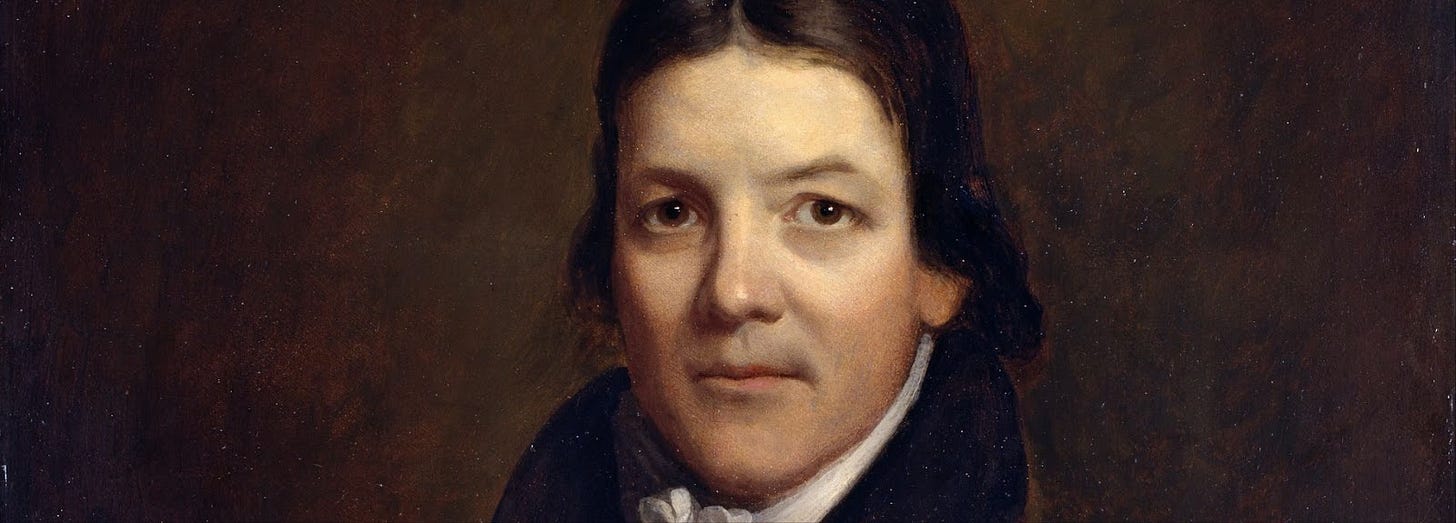Liberty and equality
Friends or foes?
“All men are by nature equally free,” wrote George Mason in the Virginia Declaration of Rights in June 1776.
“All men are created equal,” wrote Thomas Jefferson in the Declaration of Independence in July 1776.
“I love liberty, I hate equality,” said John Randolph in a typically sour moment. “I am an aristocrat.”
Three Virginians, three takes on the relation between the touchstone values of democracy: liberty and equality. Mason and Jefferson wrote before democracy was a majority opinion in America. Jefferson in particular helped make it so. Randolph spoke at a time when democracy was becoming irresistible, which soured him all the more.
Americans have long liked to assume that liberty and equality are reciprocally reinforcing. The assumption is historically understandable, considering that the clearest statement of equality, that by Jefferson in the Declaration of Independence, is immediately followed by his embrace of liberty in his listing of unalienable rights: “life, liberty and the pursuit of happiness.”
George Mason wasn't as enamored of equality as Jefferson, although his choice of words muddled the connection between it and liberty. Men were “equally free,” said Mason, but not necessarily equal otherwise. Liberty—freedom—was the essential matter to Mason. That was not to be tampered with. Everyone was equally entitled to it. But other forms of equality were beyond the purview of government.
John Randolph had no patience for assertions of equality in any form, even—or especially—regarding liberty. He insisted on liberty for himself and those he considered his peers. But this was a narrow group, the aristocrats of Virginia. The masses were not his equals, in liberty or anything else.
The debate in Virginia differed from similar debates in Massachusetts, say. The big difference had to do with slavery, which though legal in Massachusetts in colonial times never sustained the economy the way it did in Virginia, and which ended upon independence. In Virginia, every debate about liberty and equality had broad ramifications for the way Virginians lived. Any sweeping statement about liberty and equality threatened the economic and social status quo.
Mason and Jefferson recognized the bind slavery put them in. Each man owned large numbers of slaves. Though each considered slavery a pernicious influence in a republic and desired its end, neither proposed to free his slaves except as part of a statewide emancipation program. This seeming paradox was more than hypocrisy. People listened to Mason and Jefferson because they were men of stature in their community. If they had idiosyncratically freed their slaves, they would have been looked upon as cranks and radicals. Their consciences might have been clearer but their influence with their fellow Virginians would have been less. In freeing their own slaves they would have diminished their ability to free all the slaves.
Randolph had no such problem. His narrow view of aristocratic liberty let him look down upon everyone else. Yet strikingly Randolph was the only one of the three to free his slaves. Indeed, not merely did Randolph free his slaves in his will but he left an endowment to resettle them in Ohio, a free state, on farms of their own.
The tension between liberty and equality outlived American slavery. It suffused complaints about economic inequality during the Gilded Age. Socialism never caught on in America; few Americans sought to confiscate the wealth of John Rockefeller and split it among the masses. Yet though few attacked economic inequality per se, many feared that great inequalities in wealth threatened liberty. The wealth of the moguls would tilt the playing field of democracy in their favor, making ordinary Americans less able to run their own affairs—less free.
In recent decades this same argument has resurfaced. At the same time, a different concern over friction between liberty and equality has arisen. As part of a campaign to remedy the historic inequalities produced by racial discrimination, government and other institutions employed the tools of affirmative action. As they did, persons passed over for jobs and college admission complained that their freedoms were being infringed. After half a century the Supreme Court agreed.
The tension is essentially intractable. Liberty allows me to do what I want. Equality mandates that I not do much better or worse than you. More liberty means less equality. More equality means less liberty.
Societies have to strike a balance. Different societies strike different balances. No one is ever completely happy.
But even if you’re not happy, you can still do good things, like John Randolph.

